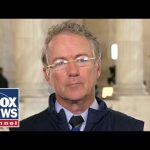Florida Senator Rick Scott recently shared some intriguing thoughts on the current state of the economy and the prospect of a promising future under new leadership. As discussions unfold in Washington, Scott believes that the presence of influential figures like Elon Musk and Donald Trump could spell dramatic changes that American citizens have been eagerly waiting for. It’s a time of adjustment, but that might just be a good thing.
The excitement begins with the recognition that inflation and government debt are problems that need effective solutions. According to Scott, business leaders are uniquely positioned to tackle these challenges. His own experience cutting 20% of the regulatory environment when he was governor resulted in flourishing jobs, which serves as a hopeful reference point. The Senator points out that incoming business-minded leaders can introduce efficiency plans that will streamline operations and foster economic growth. What’s not to like about that?
However, not everyone is on board with such optimistic expectations. There are long-standing vested interests in Washington that may not be eager to change their ways. Scott acknowledges that entrenched interests will push back against these transformations, but he remains optimistic. He feels that many in the Senate, even some Democrats, recognize the importance of innovation and progress. Yet, he emphasizes that saying they embrace change is different from actually acting on it.
Much of what needs to change can happen through executive action, especially if Trump can assemble the right team to help enact policies oriented towards growth and job creation. Scott stresses the mismatch between population growth and government spending, pointing out that a 2% rise in residents should not coincide with a massive 50% spike in expenditures. To him, this simply doesn’t add up, and fixing this imbalance is crucial to moving forward.
One pressing concern is the new agreements that make remote work more feasible. Scott is quite passionate about this topic, asserting that such arrangements seem unfair to those whose jobs require them to be physically present. He argues that if taxpayers are footing the bill, those in public service should also participate in the traditions of work. It seems common sense to him that if you want to earn an income, you ought to show up to work. These thoughts highlight a broader debate about the nature of work and the responsibilities of both employees and employers as the nation navigates its economic landscape.
In summary, Scott’s insights offer a blend of hopefulness and realism about what the future could hold under new leadership. The potential for a thriving economy is brightened by the arrival of innovative thinkers in positions of power. Nevertheless, the struggle against established interests and policies will be fierce. Still, with the right strategies and an unwavering focus on accountability, Scott believes there is a chance to turn things around for the better. In a world where change can be daunting, this may just be the kind of shake-up that America needs.




